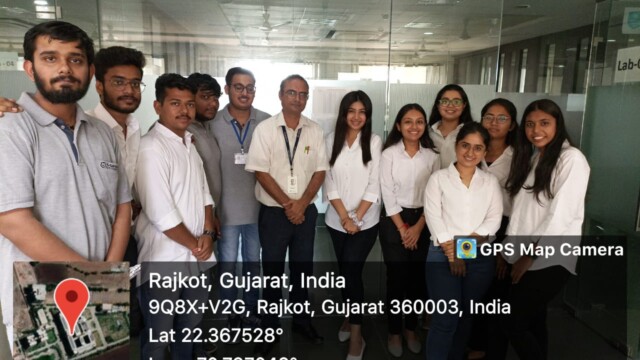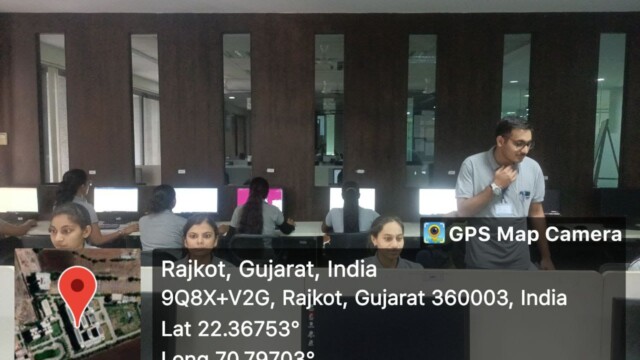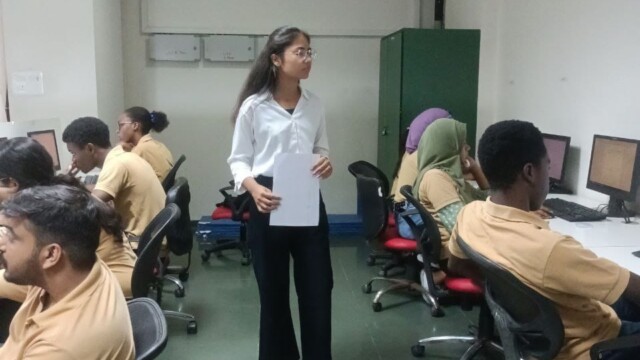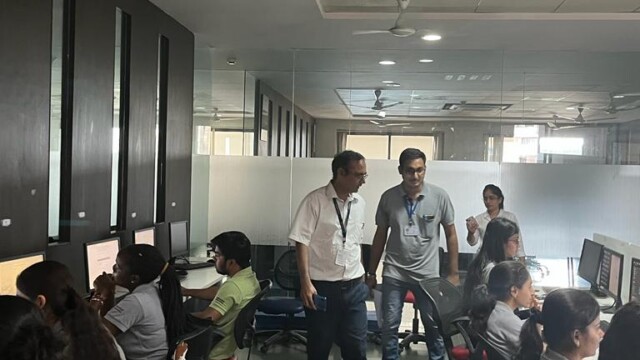INFORMATION AND COMMUNICATION TECHNOLOGY ENGINEERING (BTECH - ICT)
Overview
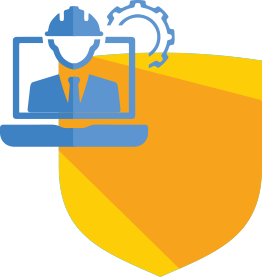
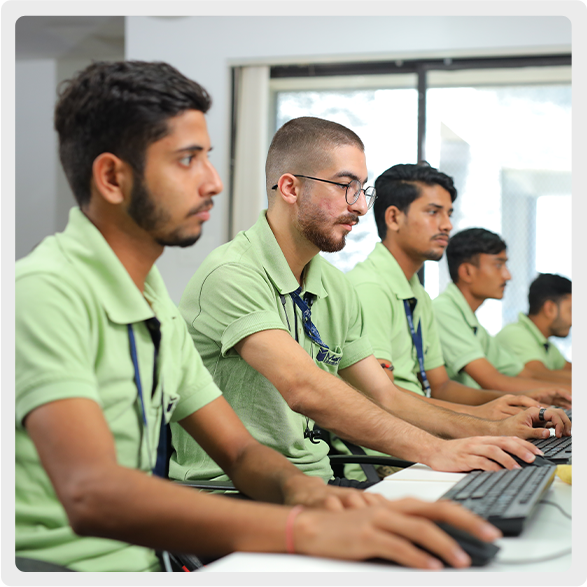
Educational
Objectives
Eligibility Criteria
| For Indian and International Students | ||
|---|---|---|
| 12th (HSc) in Science with a minimum of 45%. They should have appeared in GUJCET and should be registered under ACPC. Equivalent Qualification is required for international students |
Admission Process
Through Admission Committee for Professional Courses (ACPC)
Once you generate the PIN from bank through online or offline process,
Register yourself on
Fill the Application Details
Choice Filling
(1, 2, 3..)
You’re on the path to DISCOVER yourself
Reporting at College
Actual Admission and Token Fee Payment
Admission Process
Through Admission Committee for Professional Courses (ACPC)
Once you generate the PIN from bank through online or offline process,
yourself on
Application
Details
Filling
Rounds
(1, 2, 3..)
Admission
and Token
Fee Payment
College
path to DISCOVER
yourself
Duration and Fee structure
| For Indian Student (INR) | ||
|---|---|---|
| Information & Communication Technology Engineering (ICT) | 4 Years | 62500/- (Per Sem) |
| For International Student (USD) | ||
|---|---|---|
| Information & Communication Technology Engineering (ICT) | 4 Years | 1800/- (Annual) |
| Tentative Fees (Per Sem)* | ||
|---|---|---|
| Information & Communication Technology Engineering (ICT) | 49000/- | |
Career Opportunities
-
Software Development
-
Data Analytics
-
Artifical Intelligence & Machine learning
-
Embedded Software
-
Android / iOS App
-
Sensors & IOT
-
Network & Security
-
Robotics
-
Wireless technologies
-
VLSI chip design
-
Cloud computing
-
ICT Governance
-
Mobile applications & web development
Career Options
-
Systems Engineer
-
Solutions Specialist
-
Product Engineer
-
Technical Desiger
-
Software QA Analyst
-
Programmer Analyst
-
System Architect
-
Data-Analytics
-
IOT Based Solutions
-
Software Engineering
-
Embedded Hardware/Software
-
Cyber Security
-
Artifical Inteligence
-
Database Technology
-
Wireless and Sensor Networks
-
Image & Video Processing
-
VLSI Systems
-
ICT Governance
Curriculum
| B. Tech. Year I, Sem I | Evaluation Scheme | |||||||||||
| Subject Code | Subject Name | Category | Teaching Scheme (Hours) | Credits | Theory Marks | Tutorial/ Practical Marks | Total Marks | |||||
| Theory | Tutorial | Practical | ESE(E) | IA | CSE | Viva (V) | Term Work (TW) | |||||
| 01MA1101 | Differential and Integral Calculus | BS-UC | 4 | 2 | 0 | 5 | 50 | 30 | 20 | 25 | 25 | 150 |
| 01EE0104 | Electrical Circuits | ES-UC | 4 | 0 | 2 | 5 | 50 | 30 | 20 | 25 | 25 | 150 |
| 01EC0101 | Basics of Electronics Engineering | ES-UC | 3 | 0 | 2 | 4 | 50 | 30 | 20 | 25 | 25 | 150 |
| 01SL0102/ 01SL0103 | Reading and Writing for Technology / Speaking and Presentation Skills | GN-UE | 2 | 0 | 0 | 2 | 0 | 30 | 20 | 25 | 25 | 100 |
| 01CT0101 | Introduction to Computer Programming | ES-UC | 3 | 0 | 2 | 4 | 50 | 30 | 20 | 25 | 25 | 150 |
| 01CT0103 | Foundation skills in sensor interfacing | EE | 0 | 0 | 2 | 1 | 0 | 0 | 0 | 25 | 25 | 50 |
| 01CT0104 | ICT Workshop | ES-UC | 0 | 0 | 2 | 1 | 0 | 0 | 0 | 25 | 25 | 50 |
| 01PE0101 | Physical Education/Sports/Yoga | NCC | 0 | 0 | 2 | 0 | 0 | 0 | 0 | 0 | 0 | 0 |
| Total | 30 | 16 | 2 | 12 | 22 | 200 | 150 | 100 | 175 | 175 | 800 | |
| B. Tech. Year I, Sem II | Evaluation Scheme | |||||||||||
| Subject Code | Subject Name | Category | Teaching Scheme (Hours) | Credits | Theory Marks | Tutorial/ Practical Marks | Total Marks | |||||
| Theory | Tutorial | Practical | ESE(E) | IA | CSE | Viva (V) | Term work (TW) | |||||
| 01MA1151 | Matrix Algebra and Vector Calculus | BS-UC | 4 | 2 | 0 | 5 | 50 | 30 | 20 | 25 | 25 | 150 |
| 01EC0102 | Digital Electronics | ES-UC | 3 | 0 | 2 | 4 | 50 | 30 | 20 | 25 | 25 | 150 |
| 01ME0105 | Engineering Drawing and Computer Aided Design | ES-UC | 2 | 0 | 4 | 4 | 50 | 30 | 20 | 25 | 25 | 150 |
| 01CT0105 | Object Oriented Programming | PC | 3 | 0 | 2 | 4 | 50 | 30 | 20 | 25 | 25 | 150 |
| 01EN0101 | Basics of Environmental Studies | ES-UC | 2 | 0 | 0 | 2 | 50 | 30 | 20 | 0 | 0 | 100 |
| 01CT0106 | Introduction to R and RStudio | PC | 0 | 0 | 2 | 1 | 0 | 0 | 0 | 25 | 25 | 50 |
| 01CR0102 | Value Education | GN-UC | 2 | 0 | 0 | 2 | 0 | 0 | 0 | 25 | 25 | 50 |
| Total | 28 | 16 | 2 | 10 | 22 | 250 | 150 | 100 | 150 | 150 | 800 | |
| B. Tech. Year II, Sem III | Evaluation Scheme | |||||||||||
| Subject Code | Subject Name | Category | Teaching Scheme (Hours) | Credits | Theory Marks | Tutorial/ Practical Marks | Total Marks | |||||
| Theory | Tutorial | Practical | ESE(E) | IA | CSE | Viva (V) | Term Work (TW) | |||||
| 01MA0231 | Discrete Mathematics and Graph Theory | BS-UC | 4 | 2 | 0 | 5 | 50 | 30 | 20 | 25 | 25 | 150 |
| 01CT0301 | Computer Organization and Architecture | PC | 3 | 0 | 2 | 4 | 50 | 30 | 20 | 25 | 25 | 150 |
| 01CT0302 | Signals and Systems | PC | 3 | 0 | 2 | 4 | 50 | 30 | 20 | 25 | 25 | 150 |
| 01CR0301 | Professional Ethics | GN-UC | 1 | 0 | 0 | 1 | 0 | 0 | 20 | 50 | 30 | 100 |
| 01CT0303 | Introduction to Communication Engineering | PC | 3 | 0 | 2 | 4 | 50 | 30 | 20 | 25 | 25 | 150 |
| 01CT0307 | Data Structure and Algorithm | PC | 4 | 0 | 2 | 5 | 50 | 30 | 20 | 25 | 25 | 150 |
| 01CT0306 | Design Engineering | EE | 0 | 0 | 2 | 1 | 0 | 0 | 0 | 25 | 25 | 50 |
| Total | 30 | 18 | 2 | 10 | 24 | 250 | 150 | 120 | 200 | 180 | 900 | |
| B. Tech. Year II, Sem IV | Evaluation Scheme | ||||||||||||
| Subject Code | Subject Name | Category | Teaching Scheme (Hours) | Credits | Theory Marks | Tutorial/ Practical Marks | Total Marks | ||||||
| Theory | Tutorial | Practical | ESE(E) | IA | CSE | Viva (V) | Term work (TW) | ||||||
| 01CT0401 | Probability and Statistics | IE | 3 | 2 | 0 | 4 | 50 | 30 | 20 | 25 | 25 | 150 | |
| 01CT0402 | Problem solving using Python | PC | 3 | 0 | 2 | 4 | 50 | 30 | 20 | 25 | 25 | 150 | |
| 01CT0403 | Microcontroller and Interfacing | PC | 3 | 0 | 2 | 4 | 50 | 30 | 20 | 25 | 25 | 150 | |
| 01CT0404 | Analog and Digital Communication | PC | 3 | 0 | 2 | 4 | 50 | 30 | 20 | 25 | 25 | 150 | |
| 01CT0405 | Engineering Electrodynamics | PC | 3 | 0 | 0 | 3 | 50 | 30 | 20 | 0 | 0 | 100 | |
| 01CE0401 | Operating System | PC | 4 | 0 | 2 | 5 | 50 | 30 | 20 | 0 | 0 | 100 | |
| 01ct0406 | Technical Writing | GN-UE | 1 | 0 | 0 | 1 | 0 | 0 | 0 | 25 | 25 | 50 | |
| Total | 30 | 20 | 2 | 8 | 25 | 300 | 180 | 120 | 125 | 125 | 850 | ||
| B. Tech. Year III, Sem V | Evaluation Scheme | ||||||||||||
| Subject Code | Subject Name | Category | Teaching Scheme (Hours) | Credits | Theory Marks | Tutorial/ Practical Marks | Total Marks | ||||||
| Theory | Tutorial | Practical | ESE(E) | IA | CSE | Viva (V) | Term Work (TW) | ||||||
| 01CT0501 | Optimization Techniques | PC | 3 | 0 | 0 | 3 | 50 | 30 | 20 | 25 | 25 | 150 | |
| 01CT0502 | Database Management System | PC | 3 | 0 | 2 | 4 | 50 | 30 | 20 | 25 | 25 | 150 | |
| 01CT0503 | Computer Networks | PC | 3 | 0 | 2 | 4 | 50 | 30 | 20 | 25 | 25 | 150 | |
| 01CT0504 | Internet and Web Technology | PC | 3 | 0 | 2 | 4 | 50 | 30 | 20 | 25 | 25 | 150 | |
| 01CT0505 | Introduction to Single Board Computer Programming | PC | 0 | 0 | 2 | 1 | 0 | 0 | 0 | 25 | 25 | 50 | |
| 01CT0506 | Human Centered Design | EE | 0 | 0 | 2 | 1 | 0 | 0 | 0 | 50 | 50 | 100 | |
| 01CT05XX | Department Elective – 1 | PEC | 4 | 0 | 2 | 5 | 50 | 30 | 20 | 25 | 25 | 150 | |
| 01GS0501 | Cognitive Aptitude -1 | NCC | 2 | 0 | 0 | 0 | 0 | 0 | 0 | 0 | 0 | 0 | |
| Total | 30 | 18 | 0 | 12 | 22 | 250 | 150 | 100 | 200 | 200 | 900 | ||
| Department Elective – 1 1) 01CT0507 – Advanced Microprocessor 2) 01CT0508 – Optical Communication 3) 01CT0509 – Linux Administration 4) 01CT0510 – Applied Linear algebra 5) 01CT0511 – Theory of Compuation | |||||||||||||
| B. Tech. Year III, Sem VI | Evaluation Scheme | ||||||||||||
| Subject Code | Subject Name | Category | Teaching Scheme (Hours) | Credits | Theory Marks | Tutorial/ Practical Marks | Total Marks | ||||||
| Theory | Tutorial | Practical | ESE(E) | IA | CSE | Viva (V) | Term Work (TW) | ||||||
| 01CT0601 | Digital Signal Processing | PC | 3 | 0 | 2 | 4 | 50 | 30 | 20 | 25 | 25 | 150 | |
| 01CT0602 | Wireless Communication and Mobile Computing | PC | 3 | 0 | 2 | 4 | 50 | 30 | 20 | 25 | 25 | 150 | |
| 01IT0601 | Software Engineering | PC | 3 | 0 | 2 | 4 | 50 | 30 | 20 | 25 | 25 | 150 | |
| 01CT0603 | Reverse Engineering | EE | 0 | 0 | 2 | 1 | 0 | 0 | 0 | 50 | 50 | 100 | |
| 01CT06XX | Department Elective – 2 | PEC | 4 | 0 | 2 | 5 | 50 | 30 | 20 | 25 | 25 | 150 | |
| 01CT06XX | Department Elective – 3 | PEC | 4 | 0 | 2 | 5 | 50 | 30 | 20 | 25 | 25 | 150 | |
| 01CR0601 | Business Benchmark | UC | 1 | 0 | 0 | 1 | 0 | 0 | 0 | 25 | 25 | 50 | |
| 01GS0601 | Cognitive Aptitude -2 | NCC | 2 | 0 | 0 | 0 | 0 | 0 | 0 | 0 | 0 | 0 | |
| Total | 32 | 20 | 0 | 12 | 24 | 150 | 90 | 100 | 200 | 200 | 900 | ||
| Department Elective – 2 1) 01CT0604 – Embedded System Design 2) 01CT0605 -RF and Microwave Communication 3) 01CT0606 – Advanced Computer Networks 4) 01CT0607 – Machine learning 5) 01CT0608 – Compiler Design | Department Elective – 3 1) 01CT0609 – VLSI Designs 2) 01CT0610 – Satellite Communication 3) 01CT0611 – Cloud Computing 4) 01CT0612 – Data Warehousing and Data mining 5) 01CT0613 – .NET Technology | ||||||||||
| B. Tech. Year IV, Sem VII | Evaluation Scheme | ||||||||||||
| Subject Code | Subject Name | Category | Teaching Scheme (Hours) | Credits | Theory Marks | Tutorial/ Practical Marks | Total Marks | ||||||
| Theory | Tutorial | Practical | ESE(E) | IA | CSE | Viva (V) | Term Work (TW) | ||||||
| 01CT0701 | Cryptography and Network Security | PC | 3 | 0 | 2 | 4 | 50 | 30 | 20 | 25 | 25 | 150 | |
| 01CT0702 | Information Theory and Coding | PC | 3 | 0 | 2 | 4 | 50 | 30 | 20 | 25 | 25 | 150 | |
| 01CT0703 | Artificial intelligence | PC | 3 | 0 | 2 | 4 | 50 | 30 | 20 | 25 | 25 | 150 | |
| 01CT0704 | Management Information System | GN-UE | 3 | 0 | 0 | 3 | 50 | 30 | 20 | 0 | 0 | 100 | |
| 01CT07XX | Department Elective – 4 | PEC | 4 | 0 | 2 | 5 | 50 | 30 | 20 | 25 | 25 | 150 | |
| 01CT07XX | Department Elective – 5 | PEC | 4 | 0 | 2 | 5 | 50 | 30 | 20 | 25 | 25 | 150 | |
| Total | 30 | 20 | 0 | 10 | 25 | 300 | 180 | 120 | 125 | 125 | 850 | ||
| Department Elective – 4 1) 01CT0705 – Digital Design using Verilog 2) 01CT0706 – Computer Vision 3) 01CT0707 – Multimedia computing 4) 01CT0708 – Big Data Analytics 5) 01CT0709 – Advanced Java | Department Elective – 5 1) 01CT0710 – Embedded Operating System 2) 01CT0711 – Wireless system Design 3) 01CT0712 – IOT 4) 01CT0713 – Programming for Application Development 5) 01CT0714 – Human computer interaction | ||||||||||||
| B. Tech. Year IV, Sem VIII | Evaluation Scheme | ||||||||||||
| Subject Code | Subject Name | Category | Teaching Scheme (Hours) | Credits | Theory Marks | Tutorial/ Practical Marks | Total Marks | ||||||
| Theory | Tutorial | Practical | ESE(E) | IA | CSE | Viva (V) | Term Work (TW) | ||||||
| 01CT0801 | Project / Industrial Training | PC | 0 | 0 | 28 | 14 | 0 | 0 | 0 | 100 | 100 | 200 | |
| 01CT08XX | Department Elective – 6 | PEC | 3 | 0 | 0 | 3 | 50 | 30 | 20 | 25 | 25 | 150 | |
| Total | 31 | 3 | 0 | 28 | 17 | 50 | 30 | 20 | 125 | 125 | 350 | ||
| Department Elective – 6 (MOOC) Student have to select one of the four MOOC courses announced by the department. | |||||||||||||
Student Outcomes
Career Opportunities, Placement, Packages, Alumni
The scope of aspirants after completing M.Tech. in Computer Engineering is considerably bright. A large number of job opportunities for such graduates is been witnessed in last few decades both in private as well as public sectors. A lot of openings are also available in software sectors. Public sector companies like ONGC, ISRO, BHEL, ECIL, DRDL, SAIL, etc. are focusing on hiring M. Tech. degree holders for their R&D departments. Moreover, aspirants interested in teaching or further research is highly benefited from the M. Tech. program. There are huge openings in private sector companies like Infosys, TCS, IBM, Wipro, HCL, Accenture, etc. Job opportunities in abroad is also available for M. Tech. graduates.
Facilities
Lab
![]() Computer Networks and Security Lab
Computer Networks and Security Lab
![]() Programming Lab
Programming Lab
![]() Electronic Circuits Lab
Electronic Circuits Lab
![]() VLSI Lab
VLSI Lab
![]() Computer Architecture and Embedded System Lab
Computer Architecture and Embedded System Lab
![]() Project Lab
Project Lab
![]() Communication and IoT Lab
Communication and IoT Lab
![]() Data Science and AI Lab
Data Science and AI Lab
![]() Web Development Lab
Web Development Lab
![]() Mobile Application Development Lab
Mobile Application Development Lab
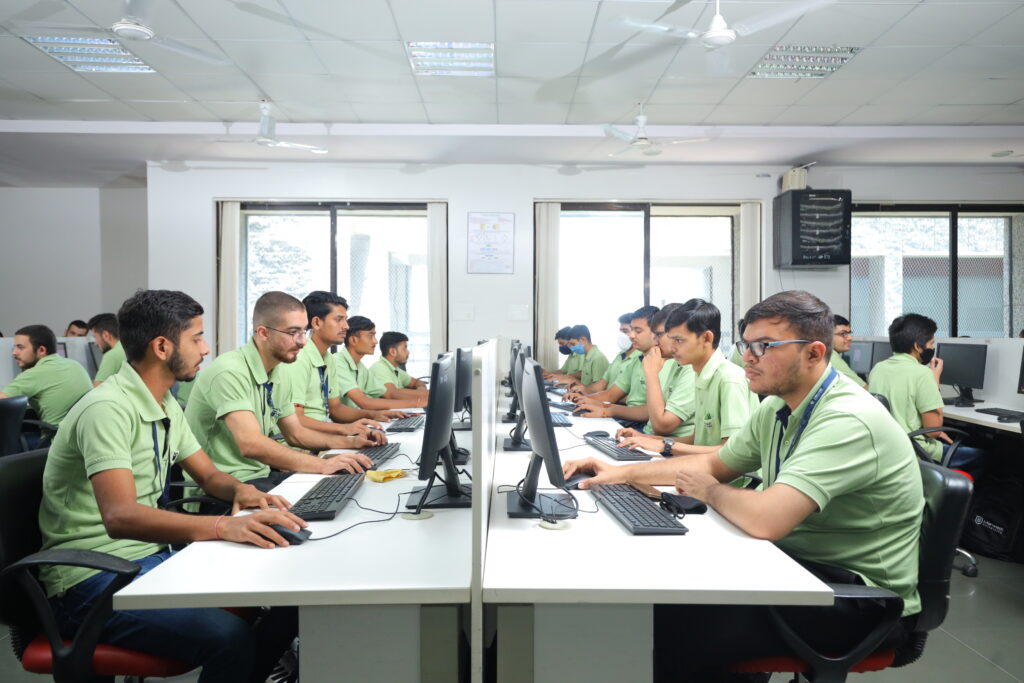
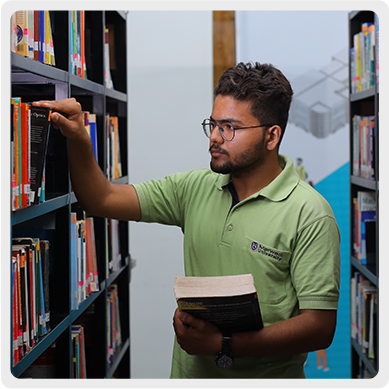
Library
There are two main libraries which make up the MU Learning Resource Centre. Specialist collections, use of up-to-date technology, and a team of enthusiastic and dedicated staff all combined to form a library which serves the Users of the Marwadi Education as well as contributes towards the research needs of the Institution, and is one of the best ICT-equipped academic libraries in the region.![]() Fully equipped with RFID (Radio Frequency Identification Device) Technology
Fully equipped with RFID (Radio Frequency Identification Device) Technology![]() Specially devised and designed Self KIOSK for Self Check in & Check out
Specially devised and designed Self KIOSK for Self Check in & Check out
![]() E-Resource Lab having 60+ computer systems with latest configuration to assist for online research and resources
E-Resource Lab having 60+ computer systems with latest configuration to assist for online research and resources
![]() Specially devised and designed Mobile Application having features of; Intimation, Alerts, History, Account Status and Books search facilities
Specially devised and designed Mobile Application having features of; Intimation, Alerts, History, Account Status and Books search facilities
![]() Connected with other libraries and resource centers to retrieve information resources worldwide Separate Study rooms and discussion rooms
Connected with other libraries and resource centers to retrieve information resources worldwide Separate Study rooms and discussion rooms
![]() Additional Transportation facility for special Late Evening & Sunday for Library users
Additional Transportation facility for special Late Evening & Sunday for Library users
![]() More than 50000 books in the library
More than 50000 books in the library
Scholarship

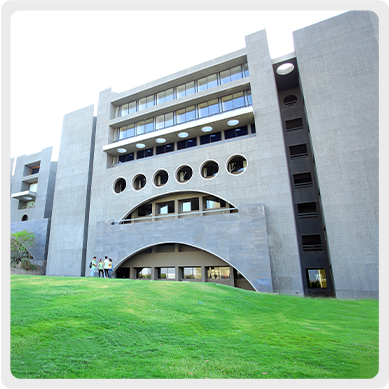
Campus Facilities
![]() Impressive Infrastructure
Impressive Infrastructure![]() IT Enabled Infrastructure
IT Enabled Infrastructure![]() Sports Infrastructure
Sports Infrastructure![]() State-of-the-art Classrooms
State-of-the-art Classrooms![]() Hostels with Gymnasium
Hostels with Gymnasium![]() Library with 50000+ Books
Library with 50000+ Books![]() Academic & Cultural Events
Academic & Cultural Events
HOD's Message
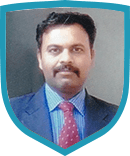
HoD, Department of Information and Communication Technology Engineering
With over 160+ PhD faculty and 10700+ students, the university offers an environment where students receive an education acknowledged to be among the best in India and work side-by-side with faculty members and industry partners to conduct cutting-edge research.
We are committed to creating a student-centric environment that increases opportunities for hands-on, experiential learning and that cultivates interdisciplinary skills, such as leadership, business acumen, and social consciousness.
It is a pleasure to lead this enormous reserve of talent and community spirit. We have achieved many milestones in the form of recognition of the achievements of our students and faculty members through accolades, honour rolls and chairs. I look forward to further developing next-gen programmes that meet both students’ needs and industry requirements. I am immensely proud of our community and excited to be a part of your journey towards success.
Our Recruiters


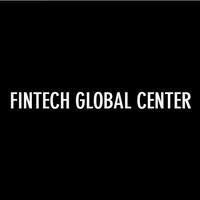
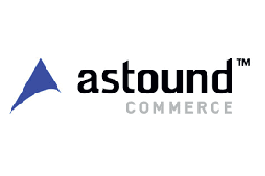
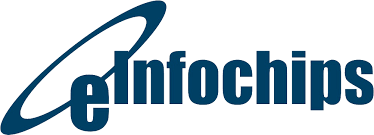


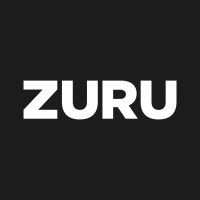
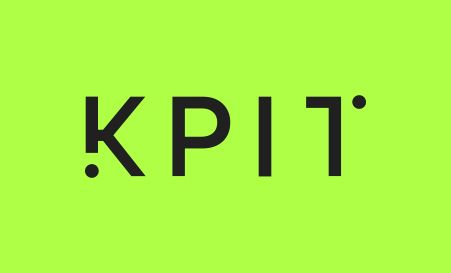
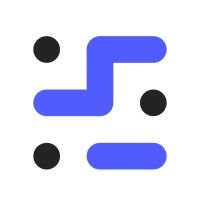
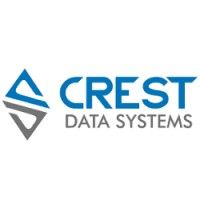

Awards & Recognition
Successful
Alumni
Faculties
FAQ
Q. Is there any Loan Facility Available ?
https://www.marwadiuniversity.ac.in/student-loan/
Q. Is there any Scholarship Available ?
https://www.marwadiuniversity.ac.in/student-loan/
Q. How is the Placement at Marwadi University ?
Q. How to Reach MU ?
Q. Is there a Hostel Facility available at Marwadi University ?
Q. What is the Fee Structure of Degree Programmes at Marwadi University ?
Q. How to Apply for Admission at Marwadi University? What form to fill ?
Q. Is Marwadi University recognised by the Government ?
Q. What all Documents are necessary to bring in while joining the University ?
Q. Is there any Medical Facility provided ?



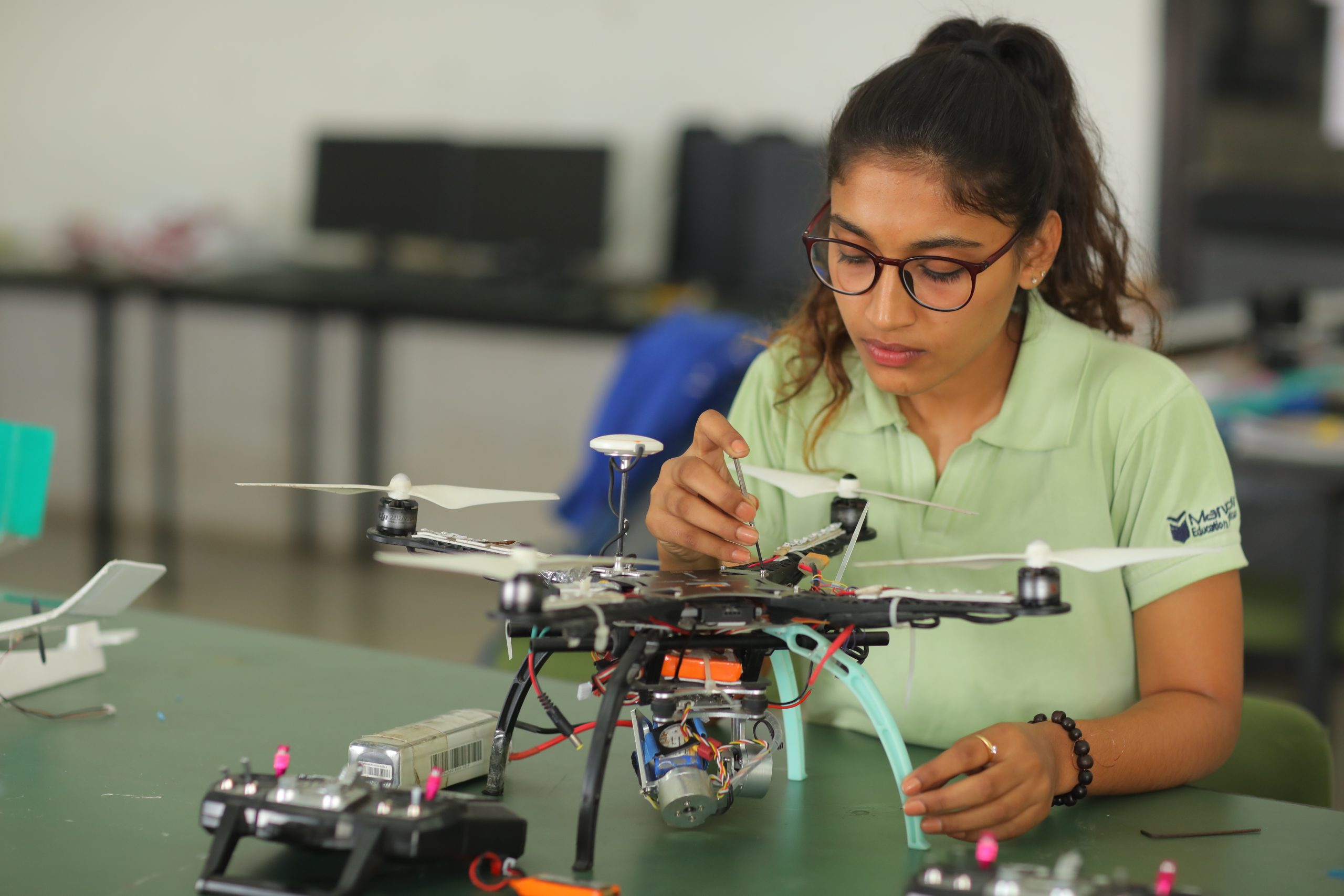

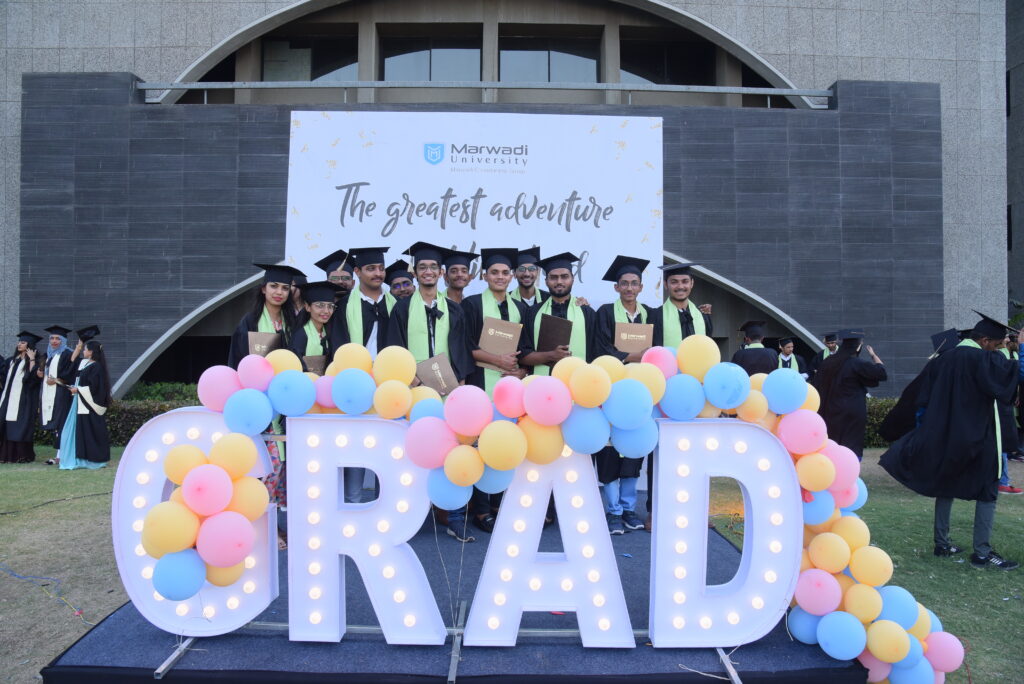
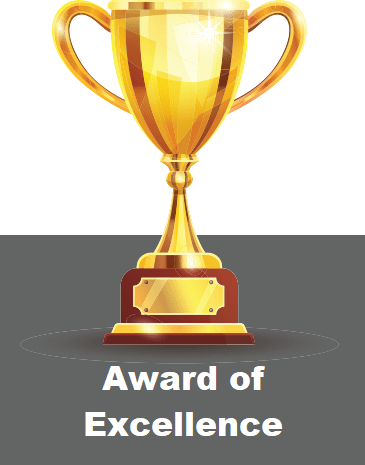
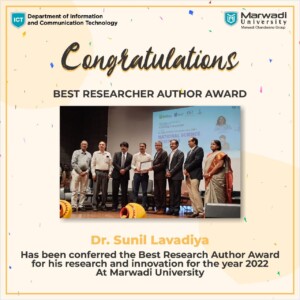
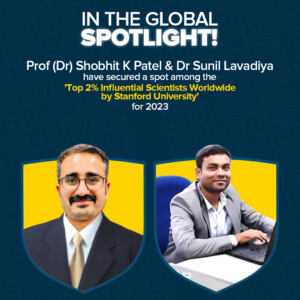
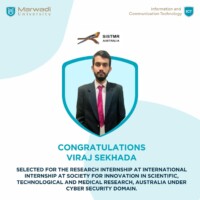
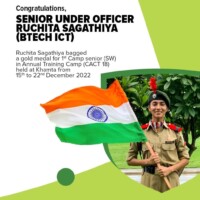
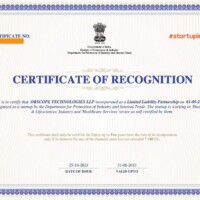
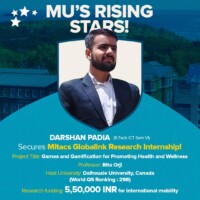
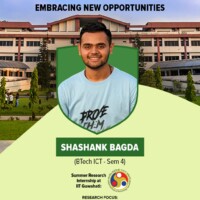
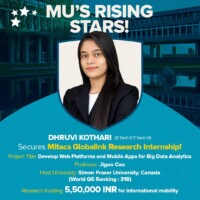
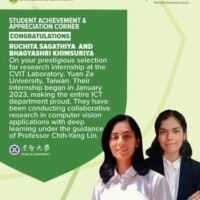
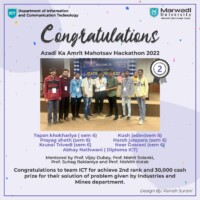
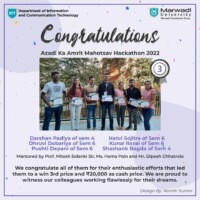
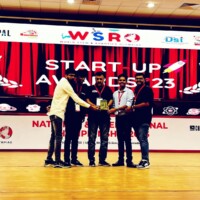
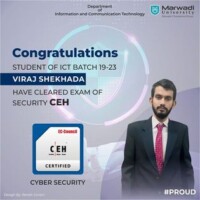
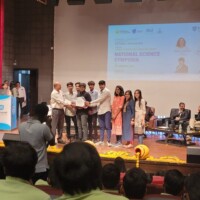
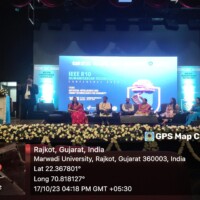
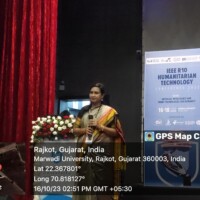
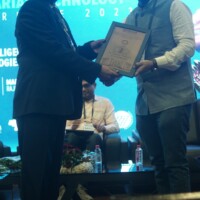
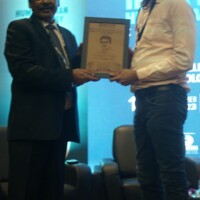
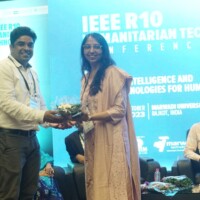
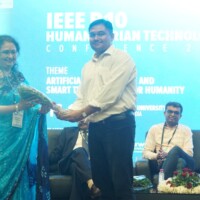
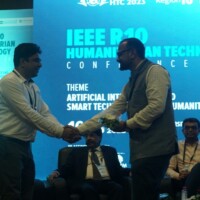
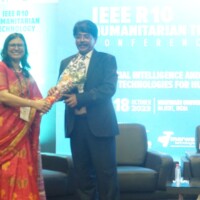
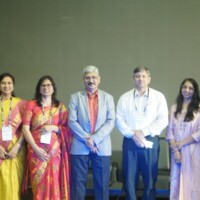
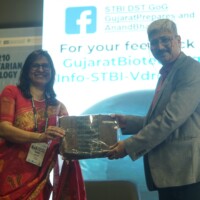
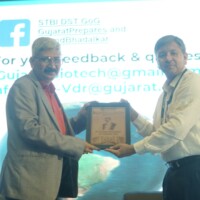
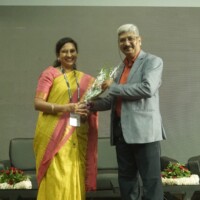
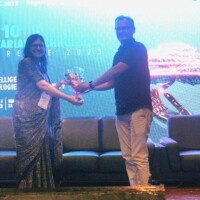
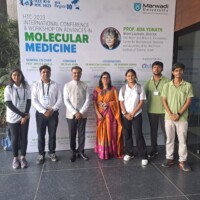
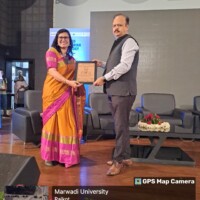
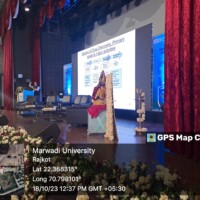
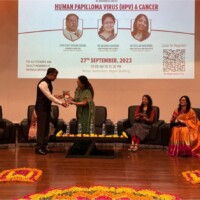
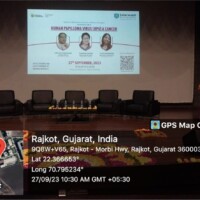
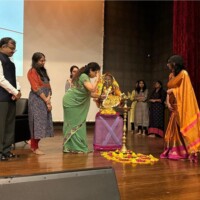
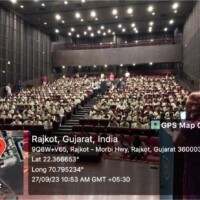
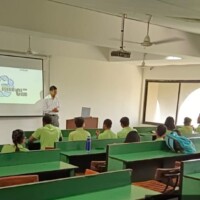
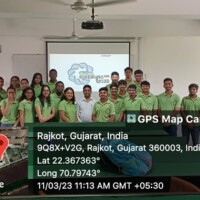
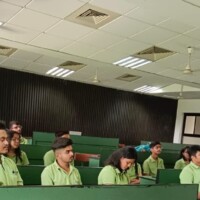
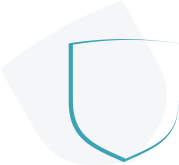




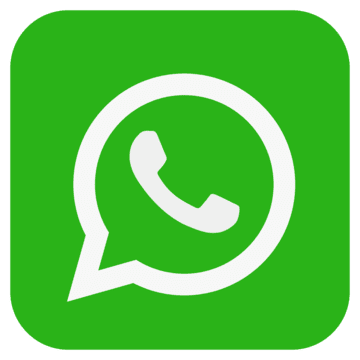


 International Airport
International Airport  Railway Station
Railway Station  GSRTC Bus Port
GSRTC Bus Port 